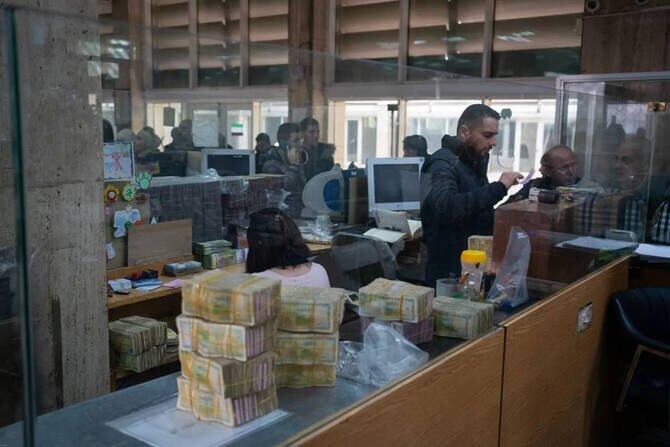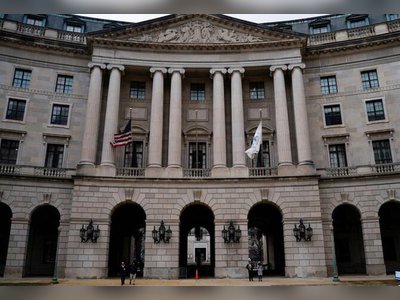
Syria Implements Comprehensive Tax Reforms for Enhanced Transparency and Investment
Major updates to Syria's fiscal policy aim to ease tax burden, stimulate economic activity.
RIYADH: In a significant move towards modernizing its fiscal framework, Syria's Finance Ministry has unveiled an extensive overhaul of the country's tax system.
The reforms, scheduled to take effect in early 2026, are designed to enhance transparency, simplify tax procedures, and foster investment across various sectors.The draft law for the new income tax system is currently open for public consultation, with feedback accepted until July 30.
This initiative seeks to streamline taxation by implementing a more equitable framework that could significantly ease the burden on taxpayers while promoting economic growth.A notable feature of the proposed reforms includes the complete exemption of individuals earning less than $12,000 annually from income tax.
This measure is intended to directly support low-income earners and stimulate consumer spending within the economy.Corporate tax rates will now be sector-specific, replacing the current 'flat income committees' system with a more transparent structure that promises to eliminate ambiguity in fiscal policy.
The transition aims to make Syria's economic environment more attractive for investors by providing clearer guidelines and incentives.Multiple charges will be consolidated into a single tax fee under the new system, effectively eliminating double taxation and simplifying compliance procedures for businesses.
Furthermore, taxpayers who contribute to social welfare initiatives will benefit from deductions on their taxable income.To combat tax evasion and ensure strict adherence to fiscal obligations, Syria plans to digitize its tax administration by implementing electronic invoicing and QR code integration across transactions.
These measures are intended to increase transparency and accountability within the tax collection process.Significantly, the burden of proving income sources will be shifted from taxpayers to the tax authority under the proposed reforms.
This change is expected to reduce bureaucratic hurdles for individuals and businesses in navigating their fiscal obligations.To incentivize timely payments and address tax liabilities effectively, the Finance Ministry plans to introduce favorable measures.
A separate initiative aims to settle outstanding tax dues efficiently, protecting public funds while avoiding unnecessary hardship on taxpayers.The implementation of these reforms reflects Syria's commitment to creating a fair, flexible, and modern tax environment that supports its economic recovery efforts.
The new system promises to foster an inclusive fiscal framework conducive to growth and investment.
The reforms, scheduled to take effect in early 2026, are designed to enhance transparency, simplify tax procedures, and foster investment across various sectors.The draft law for the new income tax system is currently open for public consultation, with feedback accepted until July 30.
This initiative seeks to streamline taxation by implementing a more equitable framework that could significantly ease the burden on taxpayers while promoting economic growth.A notable feature of the proposed reforms includes the complete exemption of individuals earning less than $12,000 annually from income tax.
This measure is intended to directly support low-income earners and stimulate consumer spending within the economy.Corporate tax rates will now be sector-specific, replacing the current 'flat income committees' system with a more transparent structure that promises to eliminate ambiguity in fiscal policy.
The transition aims to make Syria's economic environment more attractive for investors by providing clearer guidelines and incentives.Multiple charges will be consolidated into a single tax fee under the new system, effectively eliminating double taxation and simplifying compliance procedures for businesses.
Furthermore, taxpayers who contribute to social welfare initiatives will benefit from deductions on their taxable income.To combat tax evasion and ensure strict adherence to fiscal obligations, Syria plans to digitize its tax administration by implementing electronic invoicing and QR code integration across transactions.
These measures are intended to increase transparency and accountability within the tax collection process.Significantly, the burden of proving income sources will be shifted from taxpayers to the tax authority under the proposed reforms.
This change is expected to reduce bureaucratic hurdles for individuals and businesses in navigating their fiscal obligations.To incentivize timely payments and address tax liabilities effectively, the Finance Ministry plans to introduce favorable measures.
A separate initiative aims to settle outstanding tax dues efficiently, protecting public funds while avoiding unnecessary hardship on taxpayers.The implementation of these reforms reflects Syria's commitment to creating a fair, flexible, and modern tax environment that supports its economic recovery efforts.
The new system promises to foster an inclusive fiscal framework conducive to growth and investment.











